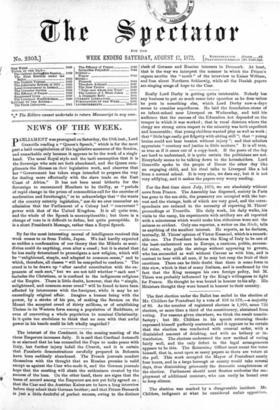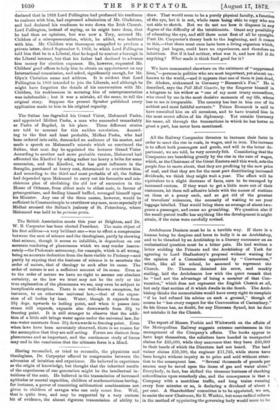The election was marked by a disagreeable incident. Mr. Childers,
indignant at what he considered unfair opposition, declared that in 1868 Lord Pollington had professed his readiness to coalesce with him, had expressed admiration of Mr. Gladstone, and had declared his readiness to vote down the Irish Church. Lord Pollington, instead of saying, as he might have done, that he had then no opinions, but was now a Tory, accused Mr. Childers of a misrepresentation, which, he added, was habitual with him. Mr. Childers was thereupon compelled to produce a private letter, dated September 9, 1868, in which Lord Polliugton told him that he is a Liberal, that he hoped to contest a borough in the Liberal interest, but that his father had declined to advanee him money for election expenses. He, however, requested Mr. Childers' good offices to help him to obtain an appointment on any International commission, and asked, significantly enough, for Mr. Glyn's Christian name and address. It is evident that Lord Pollington in 1868 intended to join the Liberals, and although he might have forgotten the details of his conversation with Mr. Childers, his recklessness in accusing him of misrepresentation was indefensible ; but it was a mistake, all the same, to tell the original story. Suppose the present Speaker published every application made to him in his original capacity.



































 Previous page
Previous page